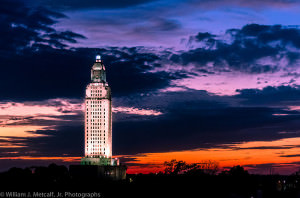


 A federal judge in Baton Rouge, La., on Sunday night issued a temporary restraining order blocking the enforcement of a Louisiana abortion law just hours before it was to take effect.
A federal judge in Baton Rouge, La., on Sunday night issued a temporary restraining order blocking the enforcement of a Louisiana abortion law just hours before it was to take effect.
The law, passed overwhelmingly this year by the state Legislature, requires all abortion doctors in the state to have admitting privileges at a hospital within 30 miles of the clinic where they work. If doctors at clinics don’t comply, the clinic can be closed.
In his order, U.S. District Judge John deGravelles allowed the law to technically be enacted Monday but blocked for the time being any punishments or penalties for abortion clinics and their doctors.
Three of Louisiana’s five abortion clinics are suing to overturn the law, arguing they won’t be able to comply and the clinics would have to shut down. The clinic doctors, while opposing the new law, also are seeking admitting privileges at area hospitals. The judge ruled the temporary restraining order would be in place until a hearing could be held about whether to impose a preliminary restraining order as the case proceeds
“We continue to look to the courts to uphold the Constitution and protect access to safe and legal abortion for all women regardless of where they happen to live,” said Nancy Northup, president of the New York-based Center for Reproductive Rights, an abortion-rights group that has joined the suit to overturn the law.
Benjamin Clapper, executive director of Louisiana Right to Life, which supports the law, said the judge’s order was “a setback,” but a minor one. “The legal process is far from over,” he said.
Antiabortion activists have been promoting admitting-privileges laws in several states, saying they protect women by ensuring that any patient experiencing complications from an abortion can be transferred easily to a nearby hospital. Opponents of such laws say they are medically unnecessary and they are a veiled attempt to close abortion clinics. Many abortion doctors, especially in the South, don’t live in the states where they perform the procedure, so getting privileges at a local hospital is very difficult, opponent of such laws say. The central legal issue being debated is whether these state laws have created burdensome rules that violate Roe v. Wade, the 1973 Supreme Court decision that established a woman’s right to have an abortion.
Louisiana’s law, sponsored by a Democratic legislator and strongly backed by Republicans including Gov. Bobby Jindal, was to take effect Sept. 1. But the Center for Reproductive Rights joined the three Louisiana abortion clinics and unnamed clinic doctors in a lawsuit filed on Aug. 22.
The temporary restraining order in the Louisiana case comes just two days after a federal judge in Texas blocked a portion of that state’s abortion law, also set to take effect Sept. 1, that would have required abortion clinics to qualify as “ambulatory surgical centers,” a rule that could have closed many clinics in the state, critics said.
The judge also ruled that an abortion clinic in El Paso and another one in McAllen could be excused from the state’s admitting-privileges requirement, which was enacted previously. Last year, the Fifth U.S. Circuit Court of Appeals upheld Texas’ admitting privileges rule.
Eleven states have passed admitting-privileges laws, and clinics in Texas, Tennessee and elsewhere have closed as a result. The rules have sparked a spate of recent legal battles.
In August, a federal judge in Montgomery, Ala., ruled that a portion of a 2013 Alabama lawthat required abortion-clinic doctors to have admitting privileges was unconstitutional. Alabama is appealing that ruling.
In July, a federal appeals court in New Orleans blocked a 2012 admitting-privileges law in Mississippi from taking effect while the case is in court. That court said in its decision that the law was likely unconstitutional.
Get all of the latest headlines and news as it happens.
Thank for visiting nationalblackroberegiment.com. In efforts to comply with the new GDPR regulations we have created a Privacy Center for your convenience.